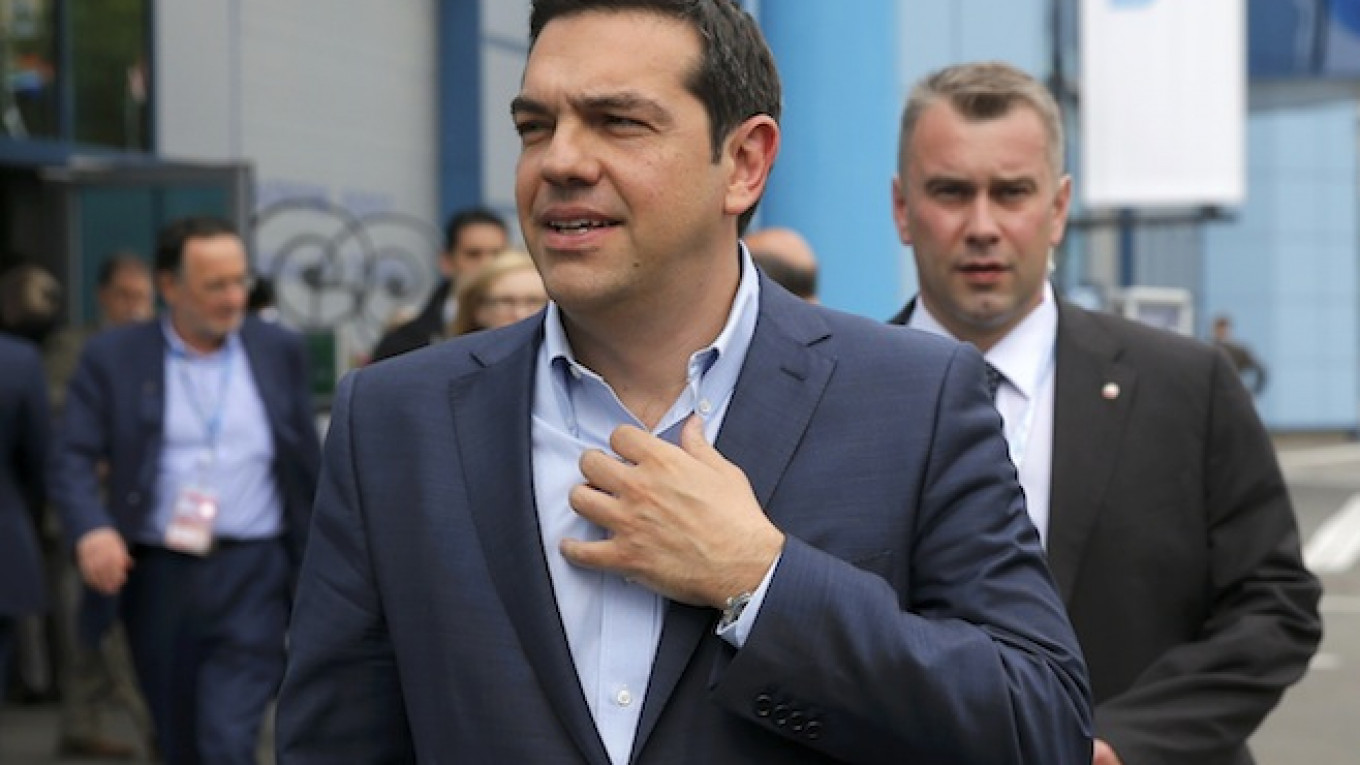ST. PETERSBURG — Greece and Russia signed a memorandum on Friday on extending the planned Turkish Stream gas pipeline to Europe through Greek territory, with financing coming from Russia.
Greek Energy Minister Panagiotis Lafazanis said at the signing ceremony in the Russian city of St. Petersburg that Greece needed support and not pressure during its debt crisis and that cooperation with Russia was not aimed against other countries or Europe.
Also speaking at the ceremony, Russian Energy Minister Alexander Novak said Russian state-owned gas producer Gazprom would not own the Greek part of the pipeline.
Novak said ownership would be split in equal parts between Russia and Greece and that financing could come from state development bank Vneshekonombank (VEB) or other Russian banks. The cost of the project had not been assessed yet, he added.
Under Gazprom's plans, the Turkish Stream pipeline will be split into four lines with a total capacity of 63 billion cubic meters a year. The first line is to supply just Turkey.
The memorandum of understanding was signed during a visit to St. Petersburg by Prime Minister Alexis Tsipras, with time running out for Athens to reach a reforms-for-aid agreement with creditors.
Gazprom plans to build a pipeline to Turkey to provide gas to Europe without going through Ukraine, although it has no firm agreement with Ankara and faces opposition from the European Union.
Moscow has stepped up efforts to find alternative gas supply routes to Europe, its biggest market, that avoid Ukraine, since Ukrainian protesters ousted a pro-Russian president last year and Russia annexed the Crimean Peninsula.
Gazprom had previously said it would stop the pipeline at the Turkish-Greek border, where a new gas hub would be created.
A Message from The Moscow Times:
Dear readers,
We are facing unprecedented challenges. Russia's Prosecutor General's Office has designated The Moscow Times as an "undesirable" organization, criminalizing our work and putting our staff at risk of prosecution. This follows our earlier unjust labeling as a "foreign agent."
These actions are direct attempts to silence independent journalism in Russia. The authorities claim our work "discredits the decisions of the Russian leadership." We see things differently: we strive to provide accurate, unbiased reporting on Russia.
We, the journalists of The Moscow Times, refuse to be silenced. But to continue our work, we need your help.
Your support, no matter how small, makes a world of difference. If you can, please support us monthly starting from just $2. It's quick to set up, and every contribution makes a significant impact.
By supporting The Moscow Times, you're defending open, independent journalism in the face of repression. Thank you for standing with us.
Remind me later.


